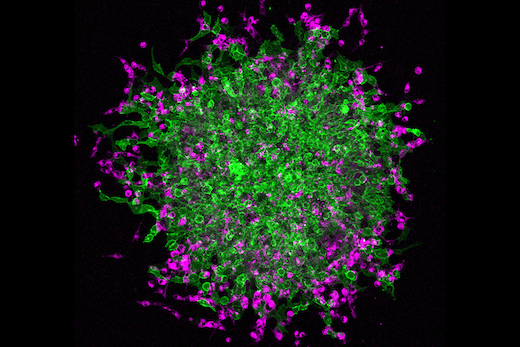Research from Adam Marcus’ and Mala Shanmugam’s labs was published Tuesday in Nature Communications – months after we wrote an article for Winship Cancer Institute’s magazine about it. So here it is again!
At your last visit to the dentist, you may have been given a mouth rinse with the antiseptic chlorhexidine. Available over the counter, chlorhexidine is also washed over the skin to prepare someone for surgery. Winship researchers are now looking at chlorhexidine and its chemical relative alexidine for another purpose: stopping cancer metastasis.
While the researchers don’t envision using chlorhexidine mouthwash as an anti-cancer measure directly, their findings suggest ways to combine other drugs, already in clinical trials, in ways that could deplete the cells needed for metastasis.
When used as an antiseptic, chlorhexidine is basically a detergent that blasts bacteria apart, scientists think. As leads for potential anti-cancer agents, chlorhexidine and its relatives appear to have a different effect. They interfere with mitochondria, the miniature power plants in our cells. Cancer cells trying to metastasize and invade other tissues seem to need their mitochondria more—especially the cells that are leading the way. Read more





